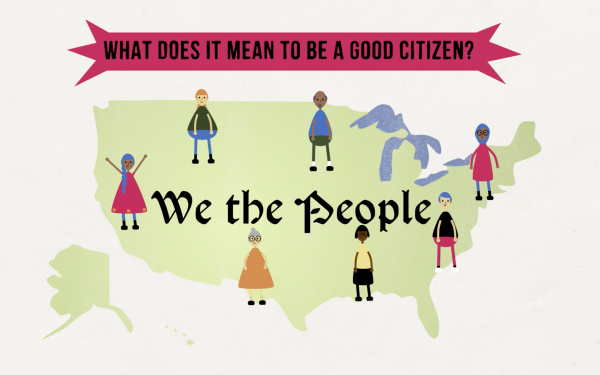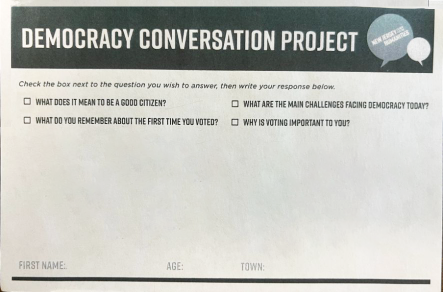
What Does It Mean to be a Good Citizen? is part of the New Jersey Council for the Humanities’ Visualizing Democracy outreach for the Democracy Conversation Project. The Democracy Conversation Project began in the spring of 2022, when NJCH distributed question cards to libraries, museums, community colleges, and historic sites throughout New Jersey and through an online portal to collect answers from residents regarding topics like citizenship, voting, and challenges facing our democracy.

This video explores the responses to the question “What does it mean to be good citizen?”. While trying to discover if there was one underlying message to take away from the responses, the video looks at which words and themes came up most, looks at demographic or regional differences in the responses, and also sprinkles in fun facts and trivia about New Jersey. The video is meant to spark conversations about what things we citizens can do to contribute to our communities, but could also be used to examine community surveys and how data is analyzed, how literature can change our ways of thinking (Auden poem), and ways we can use media for community building or persuasive arguments.
You can find more information on the Democracy Conversation Project at the NJCH Community Conversations page. This page has all of the responses to all of the questions that were part of the community survey. It also has another project from Visualizing Democracy, the Misinformation Newspaper, which explores the challenge of misinformation, a topic that came up a lot in survey answers about the challenges facing democracy.
This project is supported by the New Jersey Council for the Humanities, a state partner of the National Endowment for the Humanities, through the “Visualizing Democracy: Contemporary Conversations” Intiative.
Any views, findings, conclusions or recommendations expressed here do not necessarily represent those of the National Endowment for the Humanities or the New Jersey Council for the Humanities.